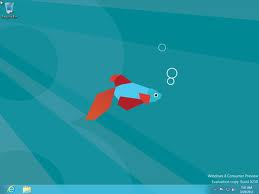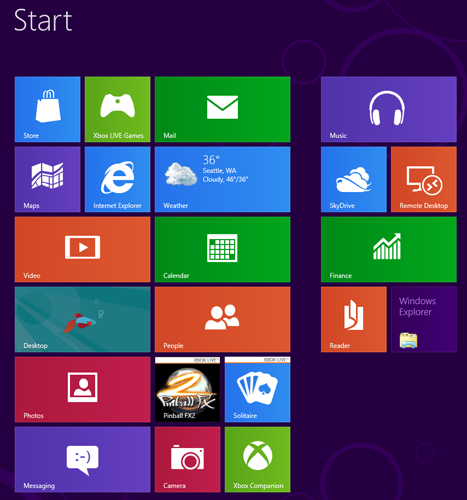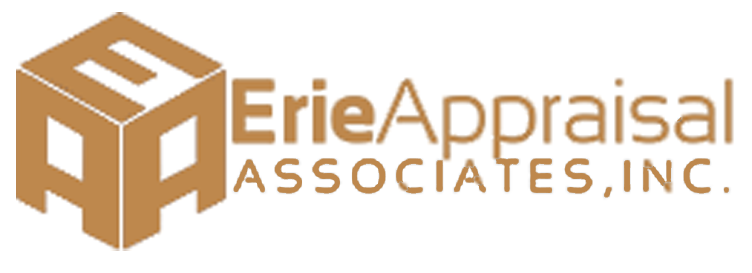Windows 8
For computer users still running Windows XP, or those who have just dipped their toes into Windows 7, news of the upcoming release of Windows 8 may come as a shock. Expected to be released by the end of 2012, this new version of the Microsoft operating system promises to radically alter the way we use, and think about, our mainstream computers.

Users familiar with smartphones and tablet devices should feel right at home with the new look and feel of Windows 8. Gone is the traditional 'Start' button for loading programs and modifiying system settings. Instead, Windows 8 features a clean, borderless desktop loaded with 'Apps'. Designed with touchscreen monitors in mind, the new system includes numerous controls for moving, scrolling, and manipulating programs and windows using just your fingers.
Although not as intuitive (at least, not at first), Windows 8 also works well with a traditional mouse and keyboard. Since the desktop is normally empty, controls and the redesigned Start Menu are accessed by pointing to the extreme corners of the screen. Other 'touch' controls can be mimicked, to some degree, using the mouse.

Traditional office programs such as Microsoft Office appear to work as in previous versions of Windows, and while some new apps have been designed to run as full screen programs, typical application programs can still be run in multiple, resizable windows (for example, to have your email program and spreadsheet open side by side, instead of needing to switch between windows).
Windows 8 also blurs the lines between local and cloud computing, since desktop apps may be local to the computer hard drive, run from a network server, or be cloud-based. Microsoft is also offering a cloud storage feature, which will allow emails, contacts, and even documents to be accessed equally from a Windows 8 computer or a Windows-based smartphone.
As to upgrading, any current Vista or Windows 7 based computer should be able to upgrade to Windows 8 without needing to reinstall any programs or re-enter settings. And again, there is no 'in-place' upgrade path from Windows XP to Windows 8 - programs must be reinstalled when making this conversion.
Also likely to happen soon will be a surge in Windows 8 based tablets and smartphones, bringing many computer desktop features to the touch-device world. Although Windows 8 represents Microsoft's vision of the future of computing, you still have time to get used to your Windows 7 computer, or continue using Windows XP. Windows 8 systems should start appearing either around Christmas 2012 or early 2013. Windows 7 is not being abandoned, and will continue to be supported at least through 2020. And if you're still using Windows XP? While mainstream support (new features and updates) is no longer provided, extended support (critical patches and security updates) will continue until 2014.
Erie County Bar Association
Tips provided by Richard D. Vasil, Vasil Consulting, Inc.
© 2012 Vasil Consulting, Inc.




